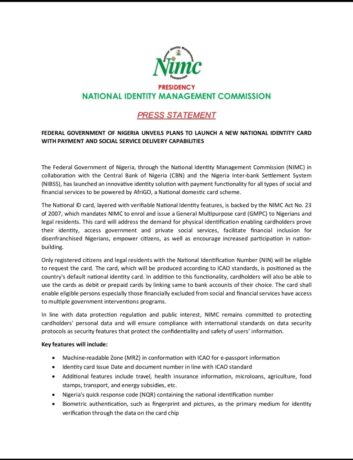Why blurry vision with diabetes
Related Posts

Nigerian Government To Launch New National Identity Card With Special Features
The Nigerian NATIONAL IDENTITY MANAGEMENT COMMISSION is responsible for the provision of identity cards to citizens to ensure adequate recognition of everyone at all times. Successive governments in Nigeria have come up with some level of moderation or changes on the identity cards. The last changes came around 2013 under the presidency of His Excellency, […]
Read More
UK Student Visa 2024: The Essential Guide for International Students
Some years ago, when I was ready to do my Master’s in the United Kingdom, it was very difficult to get the needed information. I spent both time and financial resources to get some of the pieces of information I needed. Three months into the time for me to travel, I was yet to get […]
Read More
MaxPhone review 2024: best Android smartphone of the year
Using an Android phone can make a difference with a good processor and storage capacity. MaxPhone is the Android phone to go for when you are tired of the unnecessary lag while browsing or using your phone for other things. The phone has made names for itself due to the above reasons. Among smartphones, MaxPhone […]
Read More
